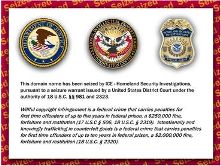 For CNET this morning, I write about the latest tempest in the AT&T/T-Mobile USA merger teapot: cellular backhaul or “special access” as its known in the industry.
For CNET this morning, I write about the latest tempest in the AT&T/T-Mobile USA merger teapot: cellular backhaul or “special access” as its known in the industry.
Like a child sitting on Santa’s lap at the mall, Sprint CEO Dan Hesse included backhaul in his wish list of conditions he’d like to see attached to the deal. Yesterday, Public Knowledge duly confirmed that yes, backhaul is a “multiplier” problem for the deal.
(Sprint says they would like the deal blocked, but that is mere posturing. What they really want is to use the FCC’s bloated and unprincipled merger review process to sneak in as many private concessions for themselves as they can get. And who can blame them for trying? More on that in a moment.)
For those who don’t know, backhaul is the process of moving cellular traffic (voice and data) to other high-speed networks (traditionally landline copper but now including cable, fiber, microwave and local Ethernet) to transport them to their ultimate destination. As mobile use increases, of course, the necessity of reliable, high-speed backhaul to keep overall performance up becomes more critical than ever.
Let’s work backwards:
1. The merger has no impact whatsoever on backhaul. PK’s Harold Feld told The Hill that “One measure of just and reasonable is comparing similarly situated customers. So AT&T has to at least be reasonably consistent in pricing. That means T-Mobile benefits to some degree from any pricing concessions that Sprint can negotiate, and vice versa. And if AT&T is too unreasonable to either one, or both, having two similarly situated companies complain to the FCC and produce evidence that AT&T is being unreasonable makes a stronger case than having just one company.”
Except that T-Mobile is not a customer. T-Mobile, like Sprint’s own subsidiary Clearwire, does not buy backhaul from AT&T or Verizon or any other landline infrastructure provider, relying instead on alternate backhaul technologies including microwave and Ethernet. T-Mobile doesn’t sell backhaul, and it doesn’t buy it from landline providers. So whatever part of the backhaul market AT&T holds today will be exactly the same the day after the merger. All Sprint loses is another company who could theoretically join it in complaining about AT&T’s rates to the FCC–except that T-Mobile doesn’t care about AT&T’s rates, because T-Mobile doesn’t buy from AT&T.
2. Sprint has only itself to blame if it’s too reliant on others for backhaul – The backhaul market, like many aspects of the communications industry (e.g., peering arrangements), is notoriously secret. No one really knows who is paying how much to whom for what–and those that do know are prohibited from disclosing.
But we do know that landline and cable companies have been investing billions over the last decade to upgrade, update, and extent their infrastructure. And we know that Sprint has not made a similar investment in landline infrastructure, putting its money in its wireless network. Which means that Sprint has known all along that it would remain reliant on its competitors for backhaul. The company made a strategic choice to lease rather than to build, knowing that while the FCC no longer regulates backhaul rates, the agency is there to keep prices in check. The merger doesn’t change that reality one iota.
Sprint says it pays “very very high” prices for backhaul from AT&T and Verizon, and that the backhaul business is exceptionally profitable. That sounds like a great opportunity, if it’s true, for someone else to enter the market. And indeed, dozens of companies large (Comcast) and small (local Ethernet) have entered the market. (Comcast projects $1 billion in its backhaul revenue in the near future.) Just not Sprint. Why should the FCC bail them out of what may have been a series of bad business decisions?
3. The real problem is merger review – As the two Republican FCC Commissioners said at the time of the Comcast-NBC Universal merger and its 200 pages of largely unrelated conditions, the FCC’s “regulation by merger” habit has grown life-threatening for the industries it regulates. Despite having nothing to do with the merger, and despite pure rent-seeking by Sprint to cut its backhaul costs in the name of antitrust, it seems possible that–sure, why not?–backhaul rate regulation concessions will be added to what will surely be the mother of all condition lists. (For AT&T, not Verizon or anyone else–at least not until their next merger review)
That is, when the FCC finally gets around to approving the deal. (The agency maintains a 180-day review deadline, but also grants itself the power to stop the clock anytime it likes. That’s how XM-Sirius took sixteen months, for example.)
The dangers of regulation by merger condition are obvious and getting worse. The merged entity is often crippled in its ability to operate for years after the merger, with each condition overseen by the FCC (and/or DOJ and/or FTC). Different companies offering similar products and services live by different sets of regulations, some of which exceed what the agencies could have legally done had they simply regulated everyone under their Congressional powers. The net result does nothing to improve competition in the relevant market. Quite the opposite.
Inviting competitors like Sprint to add to the list of unrelated conditions its Christmas list of kickbacks, sweetheart deals, tribute and plenary indulgences only makes a bad problem worse. Looking beyond the AT&T/T-Mobile merger, Sprint of all companies should know that…and know better.




